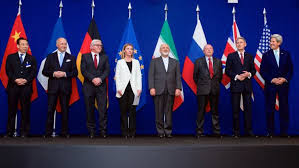The fate of the Joint Comprehensive Plan of Action (JCPOA), or what is commonly known as the Iran nuclear deal, is hanging by a thread. As diplomats are jockeying to find a way to revive the nuclear agreement, the bigger question hanging on policymakers’ heads is how to prevent a revived JCPOA or any other similar deal with Iran from suffering the same fate under President Joe Biden or his successors, and ensure its durability. Reaching a grand bargain with Tehran and involving the U.S. Congress in the adoption of the nuclear deal appear as two potential solutions, but they are not practical and realistic. Rather, what can save the Iran nuclear deal, in the long run, is resetting the Iran-U.S. relationship and establishing a modus vivendi between the two countries.
The record of the JCPOA’s enforcement over the past five years demonstrates that the main threat to any nuclear agreement with Tehran emanates in large part from Washington’s desire to preserve most of its economic leverage over Iran and minimize the actual benefits of sanctions removal for the country. This is basically because the core dispute between the United States and Iran is about the region, not just the nuclear issue. Trump’s withdrawal from the JCPOA in May 2018 and the reimposition of unprecedented U.S. sanctions against Iran clearly bear out this assessment, as they were meant to regain and expand U.S. bargaining power against Iran in the hope of securing a better nuclear deal and addressing the regional issues. Continue reading.

0 comments:
Post a Comment
Please keep your comments relevant to the specific post you are commenting on! Irrelevant comments will be deleted.